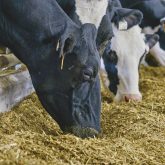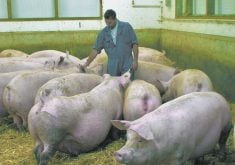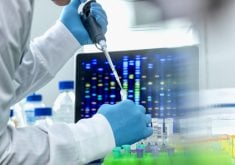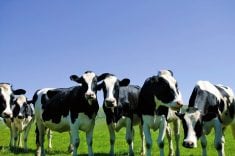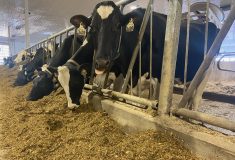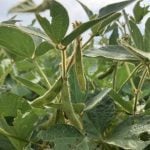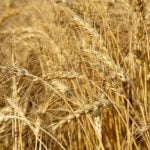There have been more than 100,000 dairy cattle genotyped for the A2 beta casein in milk and that’s allowed geneticists to create new reports for farmers.
“Beta casein is a protein that represents approximately 30 per cent of all milk proteins,” said Lactanet’s Chief Services Brian Van Doormal in an article about the release of the new reports. “There are two forms of beta casein — namely A1 and A2 — and they differ by only one of the 224 amino acids that make up beta casein.”
Why it matters: Persistent consumer demand for A2 milk means the opportunity exists for producers to secure a price premium if a supply chain is developed.
Read Also

Dissolving eartags could make pig traceability easier
A dissolving eartag for market hogs, called Clean Trace could reduce processing challenges and enable more individual management of pigs.
The new reports indicate the probability that a cow will produce A2 milk. And they provide a sense of what proportion of the herd — if bred to bulls with A2 genomics — could have calves that might be A2 producers.
Van Doormal told Farmtario that proposals for providing information to producers about A2 genetics in their herds have been tossed around for years but various factors worked against those proposals getting much traction. Some of those drawbacks have gradually faded, however, and with demand continuing both from dairy producers and other industry stakeholders, Lactanet decided the time was right to move forward.
“Several years ago, some of the industry partners — AI organizations primarily — were saying they were seeing increased demand for bulls that were A2/A2.” (The beta casein chromosome has two versions of the A2 gene as opposed to a split between A2 and A1 or both A1). At that time, a company in New Zealand owned an A2 patent that enforced a proprietary fee for A2 genomic testing. So a way to pay for these tests had to be negotiated for Lactanet’s predecessor organizations to acquire and provide this information.
Van Doormal was with the Canadian Dairy Network at the time and he recalls the interest was on the male side — from producers aiming to breed their cows to bulls with the A2/A2 genotype. Also at the time, the New Zealand company touted some early-stage studies suggesting A2 milk had better digestibility and made people less susceptible to some health issues.
With genomic testing now widely available to breeders themselves through organizations like Semex and Holstein Canada, the focus now has shifted to the female side.
Another factor is the expiry of the proprietary fee for A2 testing.
In issuing these new reports, Van Doormal stresses, Lactanet is not specifically promoting selecting A2/A2 bulls. He said the organization “has scientists who monitor the research” about the benefits of A2 milk and they confirm that longer-term studies do support the link between A2 and improved digestibility. Links of the milk to decreased susceptibility to other health issues, however, have not been confirmed.
So instead of coming down in favour of A2 or conventional, the information is being treated as simply another trait that dairy breeders have expressed a desire to focus on, which the new reports allow them to do.
It’s a trait that can’t be altered or developed through management or feeding, he says. It’s strictly a genetic characteristic that, if applied purposefully, will increase the frequency of raising replacement animals that produce A2 milk.
“It takes time because it takes generations,” Van Doormal commented. “Gradually, if you keep persistent on using A2/A2 bulls, you will develop a herd that could take advantage if a market for A2 milk came into being.”
He says Lactanet was “pleased with the immediate response on Jan. 27” to the release of the reports. “We had over 600 downloads (across Canada) within the very first week.”
Some producers wondered about updating the reports more frequently than once per year; Van Doormal says the organization will discuss options for additional reports for those who request it — as they do with certain other herd characteristics — in the upcoming months.
For herds with genomic testing, the reports provide a very accurate assessment of the probability the cow will produce A2 milk. For those not genomic tested, the probability provided is significantly less accurate —based as it is on the genetics passed down through the sire line.
Currently in Canada, aside from a small number of on-farm processing facilities using this trait as a marketing tool for their own milk, there are no supply chains established to provide price premiums for anyone supplying A2 milk to an off-farm processor.




